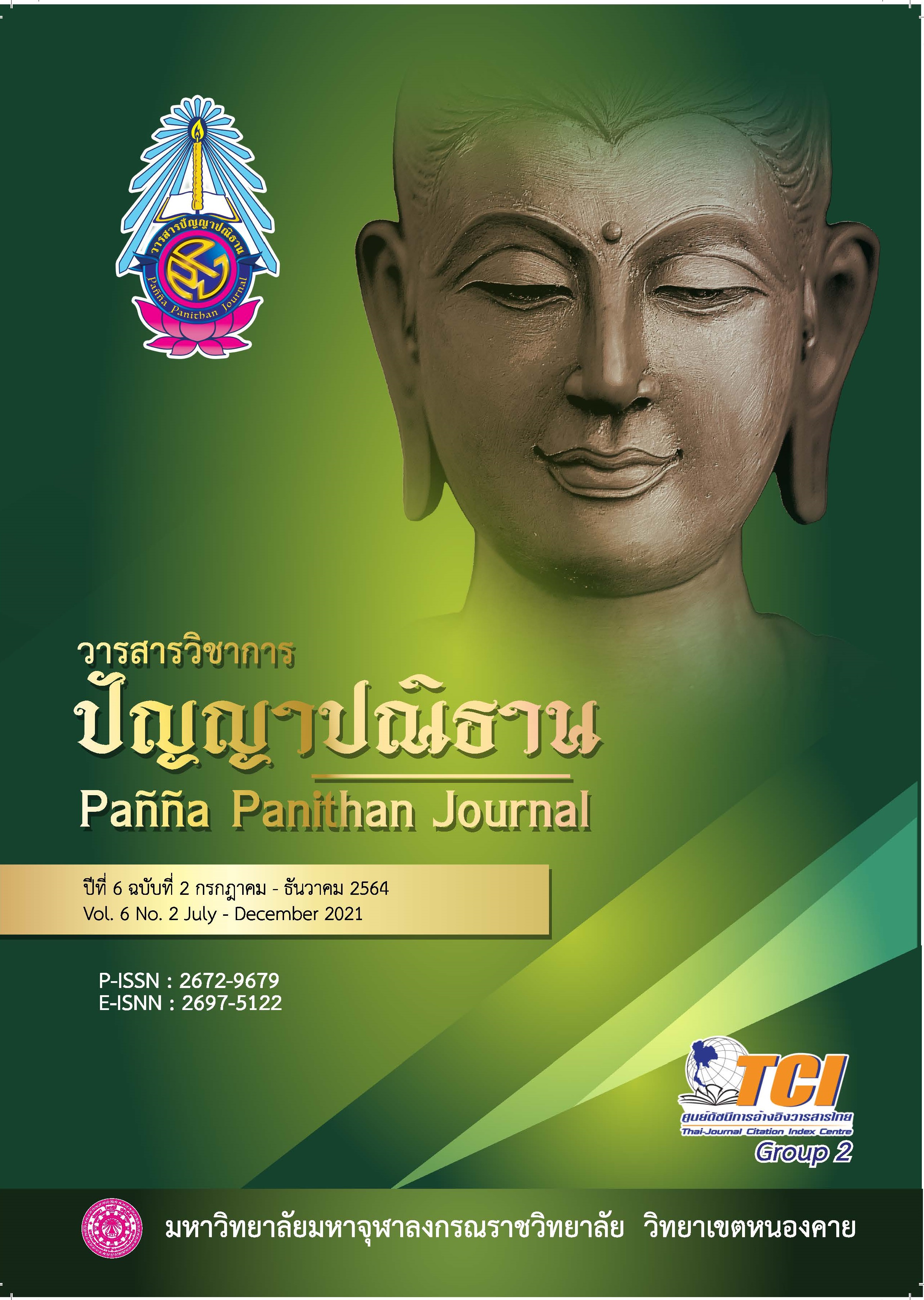A PROCESS OF ELDERS'WELL-BEING DEVELOPMENT BASED ON BUDDHIST INTEGRATED APPROACH
Main Article Content
Abstract
Abstract
The research on topic has three objectives in the following: 1) to study the process of elders’ well-being development in accordance with modern sciences; 2) to study the process of elders’ well-being development in Theravāda Buddhism; and 3) to present the process of elders’ well-being development based on Buddhist integrated approach. It is a mixed research that consists of four types in the following researches: 1) documentary research; 2) qualitative research; 3) quantitative research; and 4) participatory action research.
The results reveal that the process of elders’ well-being development in accordance with modern sciences means the use of medical treatment and public health knowledge that control and take care of well-being with internal factors. This means the development of mental well-being in positive way that supports the mental well-being to people to know their own life style in positive way with the knowing about social, cultural, and economic conditions that affect to feelings in various dimensions. In addition, it concerns with external factors that means the development of elders’ well-being with the expression of attention and awareness about preparation to support elders’ society in the future with innovation of development of elders’ well-being in accordance with modern sciences well-being development based on Buddhist integrated approach is a interrelation between process of elders’ well-being development in accordance with modern sciences and the process of elders’ well-being development according to four Bhāvanās to apply for the framework of learning curriculum. The elders’ well-being development based on Buddhist integrated approach according to four Bhāvanās In the senior school in Nan Province. The assessment of participation in learning activities of elders’ well-being development based on Buddhist integrated approach according to four Bhāvanās found that learners of elderly schools in Nan Province who participate in learning activities of elders’ well-being development based on Buddhist integrated approach according to four Bhāvanās from all topics is an average of 4.79 with the highest level of opinion and the most useful for learners.
Article Details

This work is licensed under a Creative Commons Attribution-NonCommercial-NoDerivatives 4.0 International License.
References
เอกสารอ้างอิง
กรมกิจการผู้สูงอายุ. (2559). การจัดตั้งโรงเรียนผู้สูงอายุ. เรียกใช้เมื่อ 10 พฤษภาคม 2562 จาก http://www.dop.go.th/en/topic/view=54.
เจริญ นุชนิยม. (2561). การพัฒนาคุณภาพชีวิตผู้สูงอายุด้วยวิธีพุทธบูรณาการ. วารสารสันติศึกษาปริทรรศน์ มจร, 6(2), 619-220.
ปภัสสร กิมสุวรรณวงศ์. (2555). การดูแลสุขภาพแบบองค์รวมของผู้สูงอายุตามแนวคิด ทางพระพุทธศาสนา. วารสารบัณฑิตศึกษาปริทรรศน์, 8(3), 20.
พระครูประภากรสิริธรรม. (2560). การศึกษาสุขภาวะของผู้สูงอายุในเขตชุมชนท่าอิฐ วัดแสงสิริธรรม ตำบลท่าอิฐ อำเภอปากเกร็ด จังหวัดนนทบุรี. ใน รายงานการวิจัย. มหาวิทยาลัยมหาจุฬาลงกรณราชวิทยาลัย.
พระธรรมปิฎก (ป.อ. ปยุตฺโต). (2540). ดุลยภาพ : สาระแห่งสุขภาพและความสมบูรณ์. พิมพ์ครั้งที่ 3. กรุงเทพมหานคร : มูลนิธิพุทธธรรม.
_____________________. (2540). พุทธธรรมกับการพัฒนาชีวิต. กรุงเทพมหานคร : ธรรมสภา.
_____________________. (2548). สุขภาวะองค์รวมแนวพุทธ. พิมพ์ครั้งที่ 10. กรุงเทพมหานคร : ชุมนุมสหกรณ์การเกษตรแห่งประเทศไทย.
สุพาภรณ์ กันยะติ๊บ. (2560). หลักพุทธธรรมกับการสร้างเสริมสุขภาพของผู้สูงอายุ : กรณีศึกษาสถานปฏิบัติธรรมแห่งหนึ่ง. ใน รายงานการวิจัย. มหาวิทยาลัยธรรมศาสตร์.
David, G. (2013). Policy : Sustainable development goals for people and planet. Retrieved 2 February 2016 from www.iied.org.


